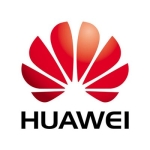What is our primary use case?
We deploy 3PAR across all of our locations, Canada-wide. It provides primary storage. It covers complex business needs. All of our financial applications sit on it, all of our databases sit on it. We also use it for unstructured data storage, and we're about 95 percent virtualized so it runs all of our virtual workloads.
How has it helped my organization?
At one point, we had HPE EVAs and when we were changing them out we didn't just look at 3PAR, we looked at all the solutions. We actually started out with a V400 which is an older version of the 3PAR - they didn't have the 7400s as yet - at our data center. Eventually, when the V400 became end-of-life, we looked at all the EVAs and by that time, they had come out with the 7400 and 7200, which are a lot less expensive and a better fit for a smaller organization. We were able to throw any workload on it and not worry about performance. It certainly made my job easy and my team's job easy in terms of maintenance and management of the platform.
What is most valuable?
The most valuable feature is the uptime. It doesn't go down. You can do firmware updates on it, no issues.
What needs improvement?
Integration with some cloud services would be nice. That's not so much of a 3PAR thing, it's more of an HPE dashboard and management platform. The 3PAR is also a part of it. We would like to be able to provision from the 3PAR and decide whether or not we are going to provision onsite or the cloud.
And something that I know that they're already bringing in is cloud-based analytics, which they are bringing in from their acquisition of Nimble. When that comes to 3PAR, that is going to be a game changer for us, that predictive analysis.
What do I think about the stability of the solution?
What do I think about the scalability of the solution?
I think it does a very good job. We're a law firm. So we store a lot of data. The way a law firm operates, you can't really predict the growth of data because they don't know the cases they're going to take on. A given case may have a terabyte of data and another case will have 15 terabytes of data. You really can't tell.
So the ability for us to quickly grow the platform, scale the platform up, is important. But as important is ensuring that, as we scale, it doesn't impact the existing users. We definitely don't have much of an issue with the growth of any of the platforms, be it the 7200 or the 7400. For us, especially on the 3PAR, HPE tends to hand-hold us through most of the scaling so I really don't have too much of an issue with it. We have a huge 7400 in our data center with about 200 or 300 terabytes of data on it.
How are customer service and technical support?
HPE has very good support on the 3PAR, including the predictive support. We have turned on the Phone Home feature, which allows the HPE engineers to figure out what's happening to the box. At the time they'll actually call us and tell us about the problem. We have actually had a replacement drive show up before we knew there was a problem.
They are one of the best in support, for sure. We're an HPE shop through and through except for networking. We are HPE for desktop, HPE for laptop, HPE for primary storage, HPE for backup, as well as HPE for archive.
Which solution did I use previously and why did I switch?
The existing solution that we had was getting to end-of-life. And the workloads that we had on it were driving the IOPS through the roof. Everything was slowing down. We knew we needed a solution that would take us through at least the next five or six years. We really didn't know where the business was going and some of the things that it was going to do. We needed a solution that could guarantee us that level of performance. With any vendor, your platform is as good as the support. And traditionally, with HPE, we have had good support on the service side.
And with 3PAR we have actually had better support compared to what we had before on the EVAs, the older version of the platform.
In terms of the most important criteria when evaluating a vendor:
- support is very important to us
- the kind of relationship that we think we will have with the vendor
- our relationships with account managers.
And the reason those relationships are important is that we really can't deal with a buy-it-and-forget-it type of vendor. Even though you might spend less money to get the platform in, when you have a buy-it-and-forget-it vendor and you need to strategize, there is nobody there to help you to strategize. If you can't find the account manager, you don't know the direction that the organization is going. It's like you buy something and then you just drop into a black hole. So it's important for us to work with a vendor who will work with us.
When you buy a platform like a storage array, it's seven years. You have to have some strategy over the seven years. By year three or year four you want to know what you should do. Do I buy the next version? Instead of one platform, they now have six platforms. Where do they fit? So that kind of interaction is important to us. So we are looking for vendors that we think we can work with.
And price is also important. At the end of the day, even though HPE makes a good platform we still have to hold them accountable and make sure that they are working within the price range of their competitors.
Features are important too. We were looking at a platform that would enable us to maximize our investment. Features like deduplication and tiering were an important part of our platform as well, the ability to move workloads from one tier to the next and to automate that using AO. In addition, features like replication, because we have our primary data center and our backup data center. And then, we're a highly virtualized environment so we needed a platform a storage platform that would be advantageous in that environment; one that would give us a better deduplication ratio built into the platform.
How was the initial setup?
The setup is complex. I don't think it's something that we could take on ourselves. I'm not sure if HPE does the same thing now, but when we bought it, HPE was actually the one that did all of the deployment. They did the "birth" right through deployment. You have to update the firmware, you have to update all the drives, you have to update the controllers. It's a pretty complex platform. In fact, I don't even think they allow you to do it. I think when you buy it, they do it.
I think it's complex enough. Hopefully, some of the tools that they are deploying now will simplify that process. But for us, when we buy maintenance, we also buy the support for them to do it. Even though it was complex, it didn't really make a difference to us because we weren't the ones doing it.
From set up to burn-in it was probably about a week. A couple of days to get it up and running, but then they had to upgrade all the firmware, upgrade all the drives. Then they had to do the validation.
What was our ROI?
As a law firm, we don't really measure ROI for 3PAR. It's difficult for us to comment. I wouldn't be able to put a number on it. What I can say, though, is that 3PAR has enabled us to bring additional services to the organization that we wouldn't have been able to bring on. The organization has been able to focus on things other than infrastructure performance.
No one cares about the performance. They simply expect that a platform is going to do what it's supposed to do. A lot of us take it for granted that nothing is going to break which, with 3PAR, is probably true - we have never had that problem with 3PAR. It has given us the flexibility of just not worrying about the infrastructure. It gives the business the confidence to roll out services.
The business has grown by leaps and bounds because we have a solid infrastructure and a part of that solid infrastructure is 3PAR.
Which other solutions did I evaluate?
We looked at all the other major vendors. We looked at EMC back then. We looked at IBM. IBM had some storage platforms back then as well. And since the transition, we have looked at some of the new players like Pure Storage. We looked at SimpliVity and Nimble before HPE bought them.
Some of them were just young. Most of those organizations came on about three or four years ago, so they were just coming onto the scene. While they were very innovative with their technology, with an organization that young, it's a risk to buy a platform when you don't know how long they're going to be around. If we had known HPE was going to buy them we'd probably be using them.
What other advice do I have?
Anyone looking into 3PAR or a similar solution needs to know the direction that the organization is going, and they need to make sure that they are are working with a vendor that is going in the same direction as the business is going. With hybrid IT, there are so many flavors of platforms out there. There's hyperconverged, the cloud is also in the mix, you have edge computing. So if you are looking for storage, you need a storage platform that can take care of the now, but from a manufacturer with the vision to know where the technology is going, so you feel like you can future-proof that platform. You don't want to buy a platform now and then, in a year and a half say, "Okay, well can my storage platform tie into this and this?" And they say, "No, no. We don't do that," and we have no intention of doing that. The important thing is to find a vendor that has a vision that matches your organization and provides the things that you want. You have to know what you want first as an organization, and then find the vendor that shares that vision with you.
Why do I rate 3PAR an eight out 10 and not a 10? It's a very complex platform to manage and it's not cheap either. It didn't really give us the level of flexibility we had for very, very small workloads. With Simplivity and Nimble, they are buying into that mid-range space. But back then, we didn't have a choice. 3PAR was the best choice, that fit everything that we had.
Disclosure: My company does not have a business relationship with this vendor other than being a customer.











